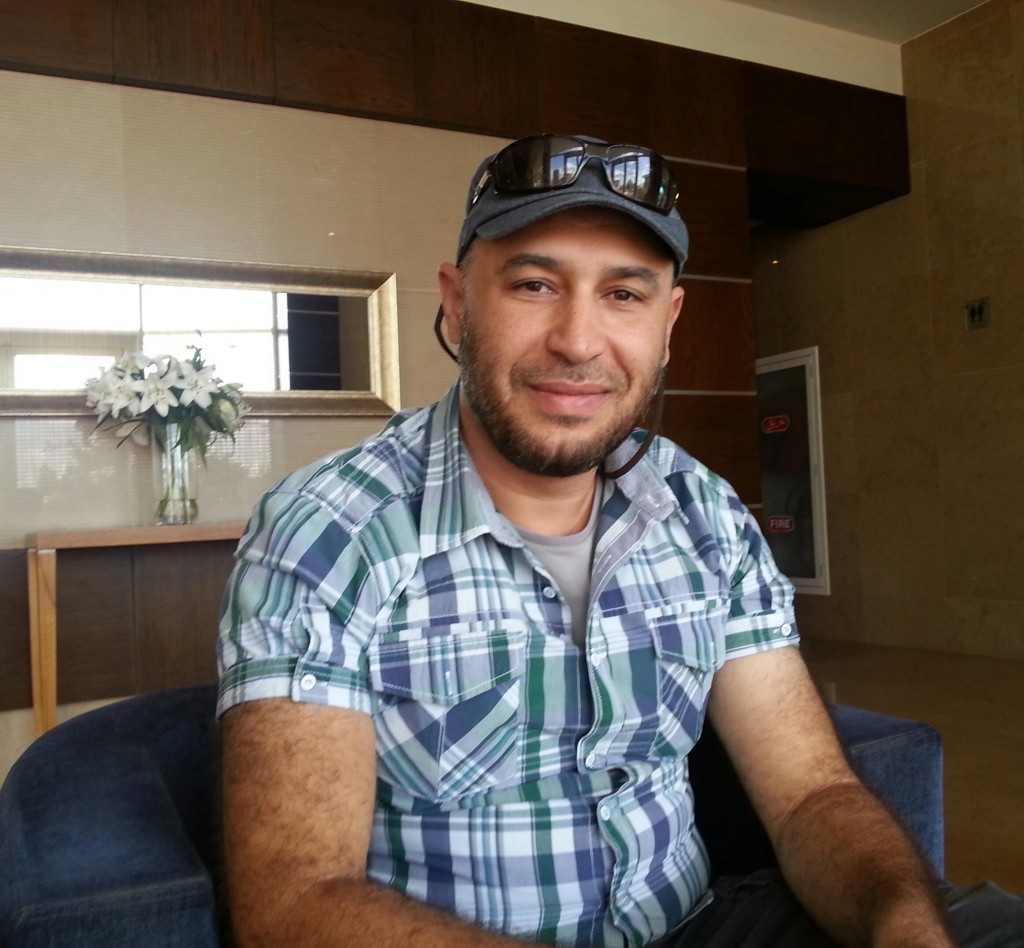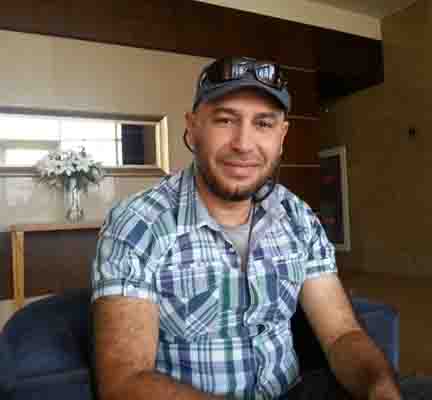By Umar Khan.

Tripoli, 18 September:
Over the past few months, growing reports have emerged from Syria of a group of Libyans engaged . . .[restrict]in the conflict to overthrow the regime of longtime dictator Bashar Al-Assad.
Having lived through the horrors of last year’s revolution in Libya, these young men have travelled to Syria to fight for a second time, out of a sense of solidarity with a country many feel has been abandoned to its fate by the outside world.
Perhaps the most famous of these repeat revolutionaries is Mahdi Al-Harati, commander of the Liwa Al-Ummah, a 6,000 strong body composed overwhelmingly of Syrians but led by a Libyan.
A softly spoken man raised in Ireland, Harati led the Revolutionaries of Tripoli brigade during last year’s uprising in Libya, and his was the first group of fighters to enter the capital from Zawiya, on 21 August 2011. Muammar Qaddafi’s last redoubt, his fortress compound Bab Al-Azizia, fell two days later.
Harati subsequently served as deputy head of the Tripoli Military Council, before stepping down in November and heading to Syria to witness the plight of the people there first-hand.
What he saw there resolved him to use his fighting experience to help Syria’s often-ramshackle revolutionaries to organise themselves into a more effective fighting force.
Earlier this year, he formed the Ummah brigade for that purpose. Here he speaks to the Libya Herald about his experiences and what it means to be a Libyan in a Syrian revolution.
“When I first arrived in Syria, what I saw was a group of people in a terrible condition. I was touched with the response I received and realised these men wanted all the help they could get.
“They welcomed me and requested me to help them”, Harati says. “I accepted and initially started to work on the lines of relief goods.”
What Harati soon realised, however, was that the level of fighting and the loss of life was such that the situation was much more difficult than even what he had faced in Libya.
“The situation was very grim and there was no comparison between the two countries. I realised the fight was tough as the people were being killed in large numbers every day and the Syrians would require all the help possible to succeed.”
After realising the nature of the war Harati knew that it would take help from the broader Muslim community (the Ummah) to topple the Assad regime, and so it was that the Ummah brigade was formed.
“War required a serious contribution from the Ummah and they didn’t disappoint, praise be to God. People contacted me from all over the world to help the Syrian cause,” he said.
“There are now more than 6,000 fighters in the Liwa Al-Umma. We have strictly kept 90 per cent of the members Syrians.”
The remaining ten per cent, Harati says, are drawn from other Muslim countries, including Libya. Many of the Libyans fought with Harati in the Tripoli Revolutionary Brigade and are amongst Harati’s closest confidants, including his brother-in-law Housam Najjair.
“The Syrians were very willing to fight but didn’t have the expertise to do so effectively. So I decided to put my experience from Libya to good use and trained the locals. But the response from around the world was amazing. People were coming from different countries to help their brothers and sisters in Syria. They realised that Syria is the gateway to Quds and the Ummah must contribute to help liberate and protect it.
“Turkey was full of people who wanted to fight. At one point I had to stop them from coming to Syria as I lacked the resources to manage that many fighters.”
Harati says that many people wanted to help the Syrians but did not see a way to do that and his involvement with the cause provided it with much needed international attention.
“It was a big turn for the revolution in Syria as people from all countries started to help them through us. We got the attention and paved the way for large scale humanitarian aid.”
In recent months, numerous humanitarian convoys have been sent by private citizens from around the world, including Libya. Most recently, a convoy from Benghazi docked in Turkey before travelling under armed protection into Idlib province, the scene of some of the fiercest fighting of the Syrian revolution.
Speaking about the role of his brigade and its effect on the revolution, Harati says that much has changed since his arrival last year.
“Things are very different now from when we started. Initially, we trained the Syrians using our Libyan experience and they welcomed us. We connected with the people there. The Liwa-Al-Ummah has a good reputation; people want to join us.
“Liwa is in many cities like Idlib, Aleppo, Hums, Deir Azzour, Latakia and even in Damascus. I’m not exaggerating when I say that Assad’s forces also fear the Liwa.”
Harati also stresses that the brigade is not solely involved in fighting. Throughout its existence, it has also been engaged in the distribution of relief goods to different affected areas.
Speaking about the current situation and the possible outcomes, Harati says that the Assad regime will fall, and sooner rather than later.
“Assad’s time is near. He has already lost control of quite a large area of the country. The only problem stopping the advance of the revolutionaries is the air support he has. But things are changing quickly now and you hear quite frequently the planes being downed by the fighters.
“But the loss is great; so many are dying – hundreds every day. The media is not showing even one percent of what is exactly going down in Syria.”
Harati says that the Syrians feel betrayed by the international community.
“Whole cities have been razed to the ground and the international community is still not doing enough. The damage done to the cities is unimaginable. Assad is still being supported by a few countries, including Israel.” He added, “Assad removed his forces from the Golan Heights and deployed them in different areas to kill Syrian people. It’s very clear who is helping Assad yet people are still silent.”
Harati also says that once the revolution is finished, there will still be some tough choices for the people of Syria. He believes that some powers are trying to split the country into two pieces based on sects but thinks that this will not happen.
“The delay in the response by the international community is only giving Assad more time to kill people. We have to realise the nature and scale of damage, every passing day is costing more human lives.”
Asked about the rumours that have surfaced several times about his death, Harati says that such propaganda shows the level to which the Assad regime has been reduced.
“They show my picture ten times a day on national television and have placed a bounty on me too.
“Every time they start a rumour, my family gets worried and I have to get in touch with them to confirm my safety but it will not last long. Assad’s end is near.”
Umar Khan can be followed on Twitter @umarnkhan [/restrict]










